Learn English
Boost Your English: Smart Tips for Learning Through Movies and TV Series
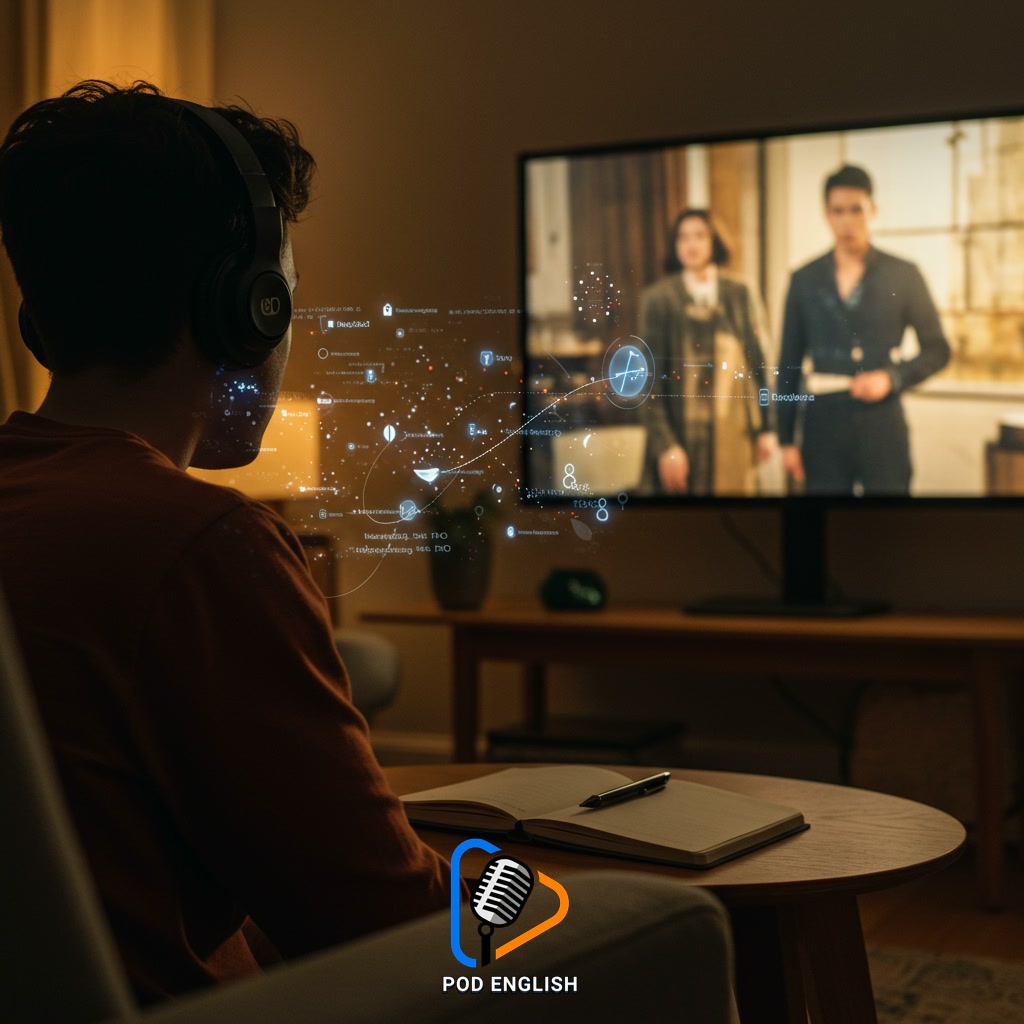
This content provides smart techniques to significantly improve your English skills. It details how to effectively utilize movies and TV series as engaging tools for language development. You’ll find practical advice on actively listening, expanding vocabulary, and mastering pronunciation while enjoying your favorite shows. Make entertainment a productive part of your language learning journey.
Table of Contents
- Section 1: Why Learn English with Movies & TV? The Benefits
- Section 2: Choosing the Right Content: What to Watch and Why
- Section 3: Smart Viewing Techniques: Active Strategies for Learning
- Section 4: Putting Knowledge into Practice: Beyond Just Watching
- Section 5: Useful Tools and Resources to Enhance Your Learning
- Section 6: Overcoming Challenges and Staying Motivated
- Section 7: Conclusion: Making Entertainment Your English Classroom
Section 1: Why Learn English with Movies & TV? The Benefits
Learning English through movies and TV series offers unique and significant advantages. Unlike traditional methods, watching shows provides authentic exposure to how English is spoken in real-life contexts, including natural pace, intonation, and colloquialisms that textbooks often miss. You’ll encounter a wide range of vocabulary, from everyday slang to specific terminology, presented within a clear visual and situational context, making it easier to guess meaning and remember new words. Furthermore, immersing yourself in different accents and conversational styles improves listening comprehension dramatically. This method also makes the learning process enjoyable and engaging, transforming study time into leisure time and boosting your motivation to practice consistently. It’s a fun, effective way to connect with the language and culture.

Why Learn English with Movies & TV? The Benefits
Section 2: Choosing the Right Content: What to Watch and Why
Okay, you know movies and TV are great for learning. But how do you pick *what* to watch? Choosing the right content is crucial. Start with shows or movies that match your current English level. Don’t jump into complex dramas if you’re a beginner; try animated series or sitcoms with clear dialogue. Most importantly, pick something you genuinely enjoy! Your interest will keep you motivated through repeated viewings. Consider the type of English you want to learn: British, American, or specific accents. Look for content with available subtitles in English (not your native language initially) to help follow along. Selecting wisely makes the learning process much more effective and fun.
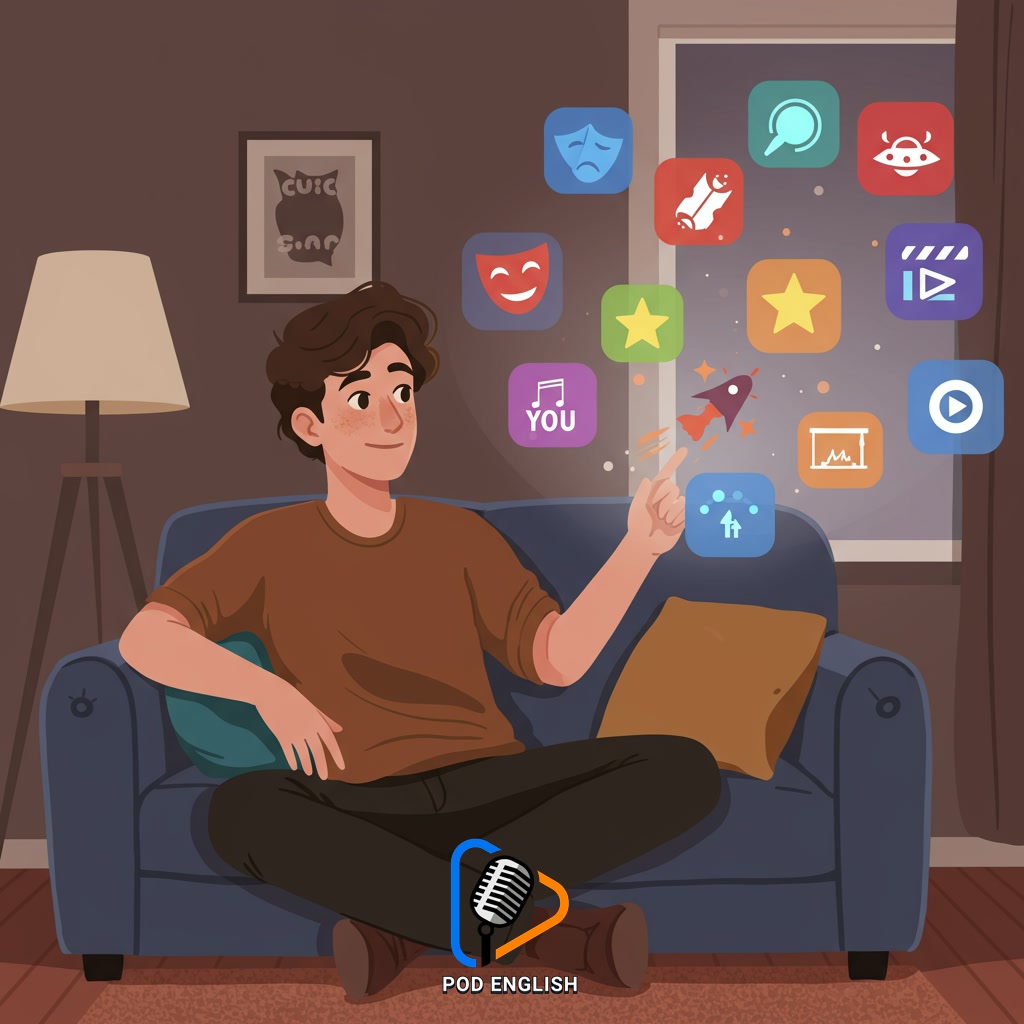
Choosing the Right Content: What to Watch and Why
Section 3: Smart Viewing Techniques: Active Strategies for Learning
Once you’ve selected the right show or movie for your level, the key is to watch actively, not just passively. Instead of simply letting the story unfold, engage with the language. Try starting with English subtitles to help bridge understanding, then challenge yourself by turning them off for scenes you want to review. Don’t hesitate to pause the video to look up unfamiliar words or phrases, and even repeat lines out loud to practice pronunciation and intonation. Keeping a dedicated notebook for new vocabulary you encounter is a highly effective strategy. Consider re-watching favorite scenes or even entire episodes to reinforce learning and catch nuances you missed the first time. This active engagement transforms entertainment into a powerful learning tool.
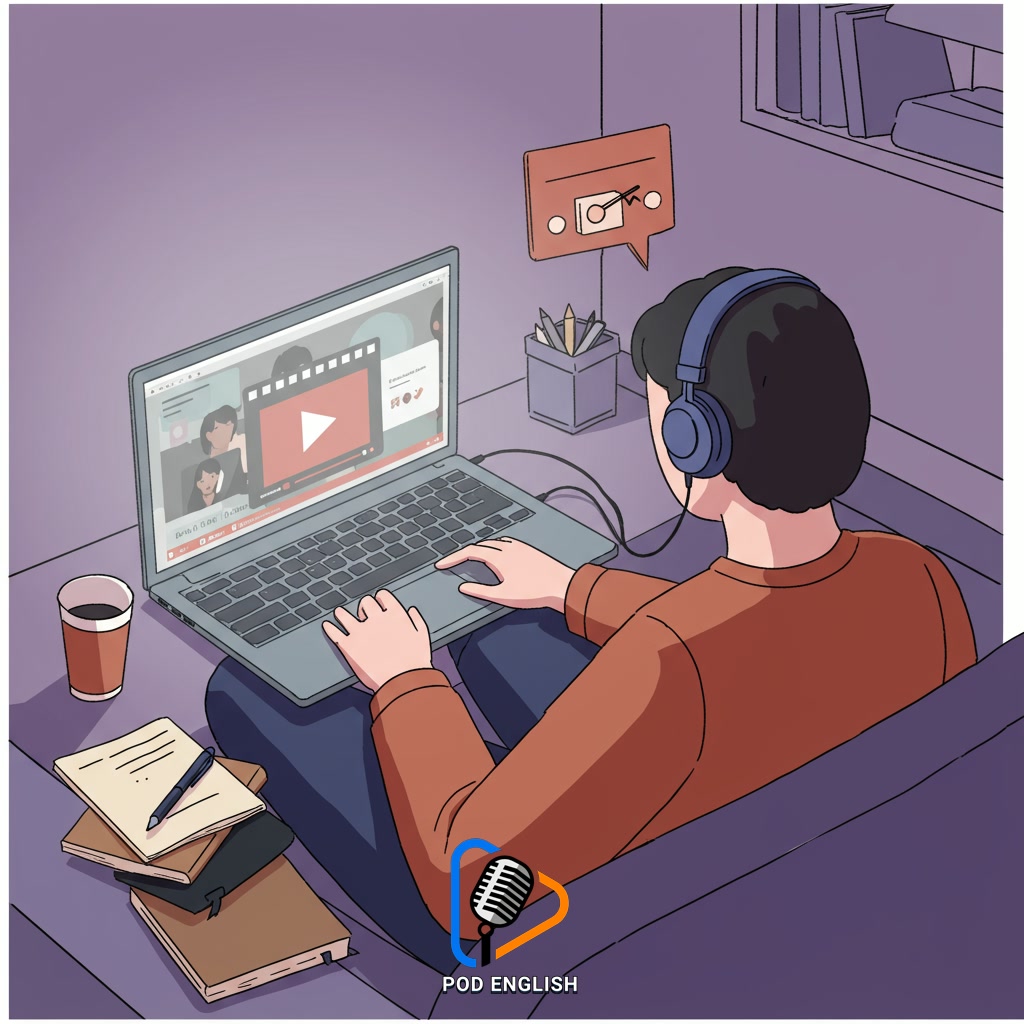
Smart Viewing Techniques: Active Strategies for Learning
Section 4: Putting Knowledge into Practice: Beyond Just Watching
Following the initial steps of active viewing, the crucial next phase is to actively use the language you encounter. Don’t just understand; practice. Pause the show or movie frequently to repeat lines aloud, focusing on pronunciation and intonation – this technique is known as shadowing. Note down interesting vocabulary, useful phrases, or common idiomatic expressions. Consider using these new elements in your own sentences, perhaps by writing them down or trying to incorporate them into practice conversations. Experiment with different subtitle settings: try English subtitles, then turn them off once you feel confident, or even use dual subtitles initially. The key is to move from comprehending the language passively to actively producing it, making it a part of your own linguistic toolkit.

Putting Knowledge into Practice: Beyond Just Watching
Section 5: Useful Tools and Resources to Enhance Your Learning
After actively engaging with the language by pausing and repeating, leveraging supplementary tools can significantly boost your progress. Several resources are available to make learning from movies and TV more efficient. Consider using browser extensions designed for language learning, which offer features like dual subtitles (showing both English and your native language) or instant dictionary lookups when you click on a word. Mobile apps also exist that integrate video playback with interactive vocabulary builders. Don’t forget the power of a good online dictionary or translation tool readily accessible on another device. These tools provide quick clarification for unfamiliar words or phrases, reducing frustration and allowing you to maintain flow while watching, ultimately making the learning process smoother and more effective.
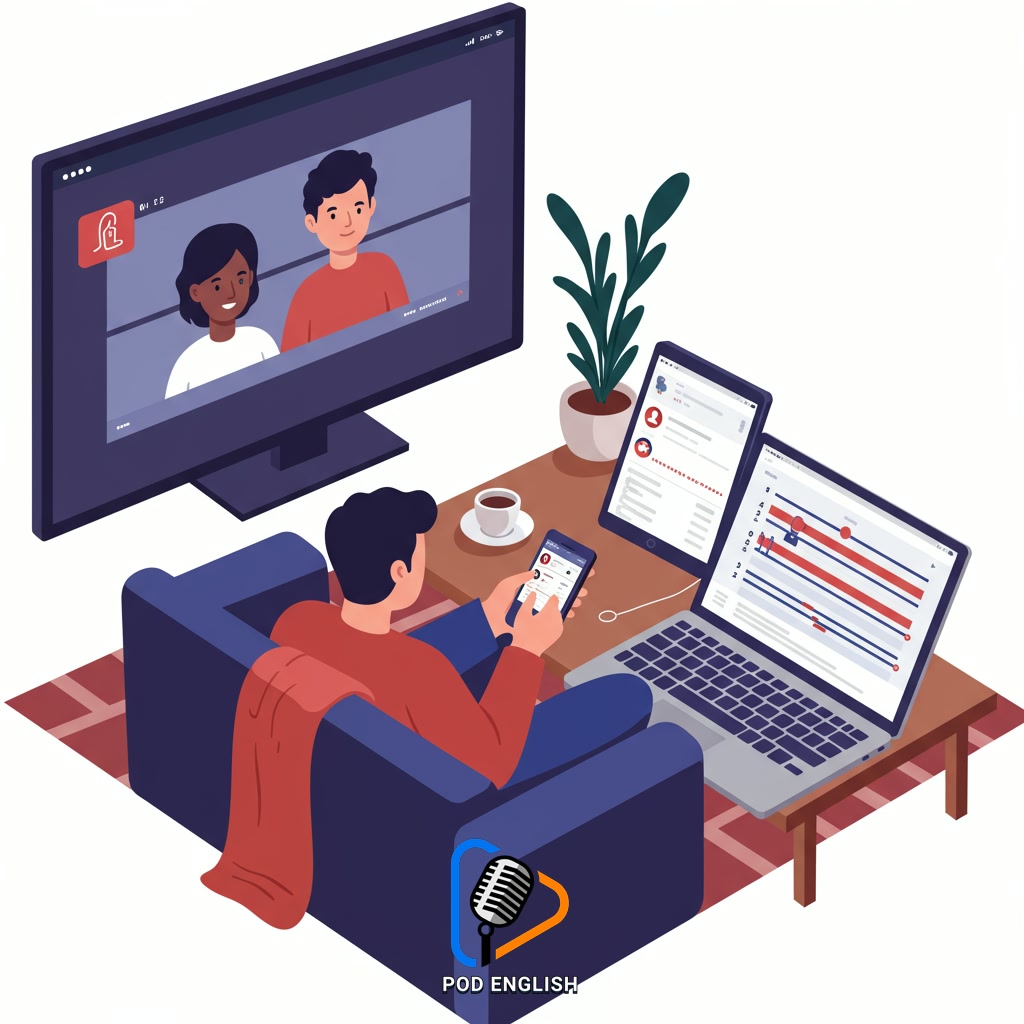
Useful Tools and Resources to Enhance Your Learning
Section 6: Overcoming Challenges and Staying Motivated
It’s natural to face hurdles when learning English through movies and TV. You might struggle with fast speech, unfamiliar accents, or feeling overwhelmed by new vocabulary. The key to overcoming these challenges and staying motivated is persistence and setting realistic expectations. Don’t aim for 100% understanding immediately. Start with subtitles in your native language, then switch to English subtitles, and eventually try watching without them. Break down learning into manageable chunks – focus on understanding a specific scene or episode. Celebrate small victories, like grasping a difficult line or using a new word you learned. Remember your initial motivation: the enjoyment of the show itself. Connect with online communities or friends also learning English to share experiences and tips. By acknowledging difficulties and employing practical strategies, you can maintain momentum and significantly boost your English skills while enjoying your favorite entertainment.
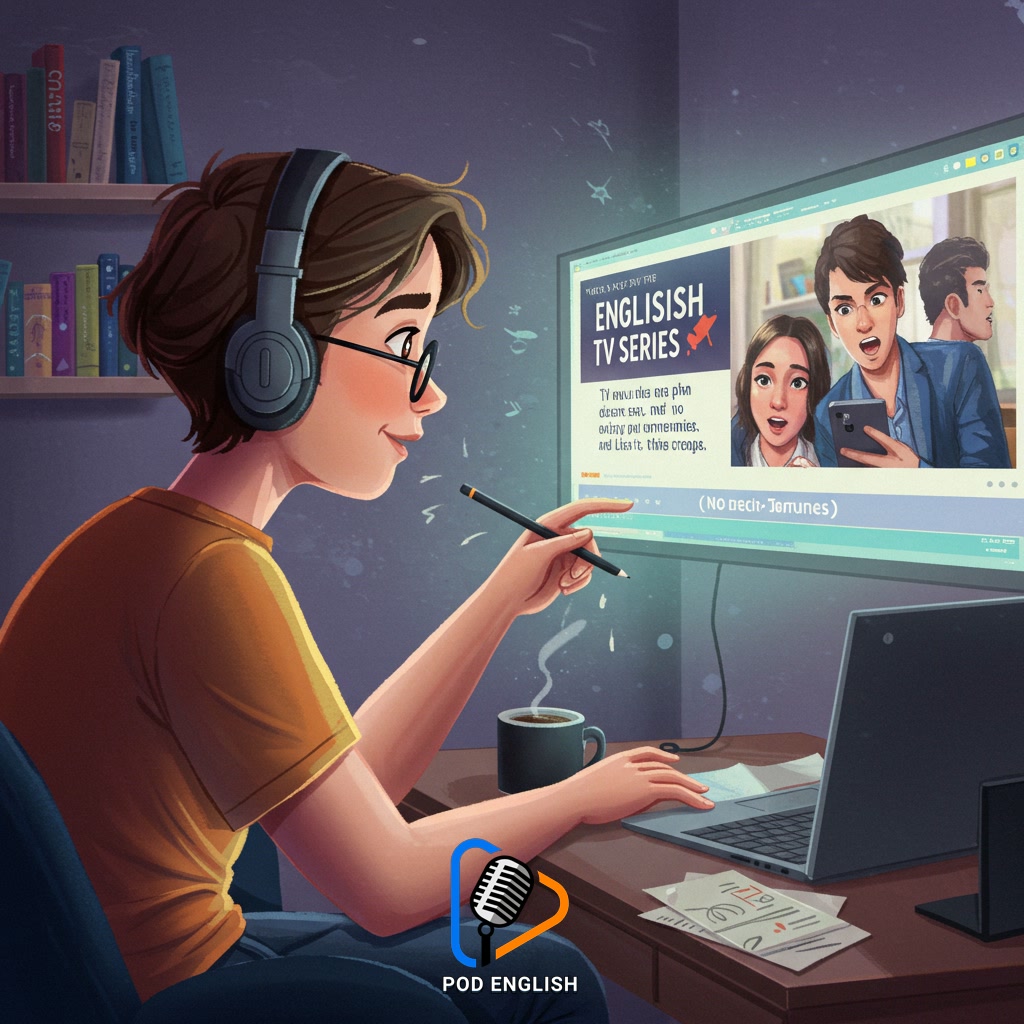
Overcoming Challenges and Staying Motivated
Section 7: Conclusion: Making Entertainment Your English Classroom
In conclusion, transforming your entertainment time into a productive English learning experience is not just possible, it’s highly effective. By applying the smart tips discussed, such as active listening, focusing on phrases, and regular practice, you can navigate challenges like fast speech or new vocabulary with greater ease. Remember, consistency is key. Even short, focused sessions watching your favorite shows can significantly boost your comprehension, vocabulary, and fluency. Embrace this enjoyable method and watch your English skills flourish as you make movies and TV series an integral part of your language learning journey. Let your screen time become your classroom time.
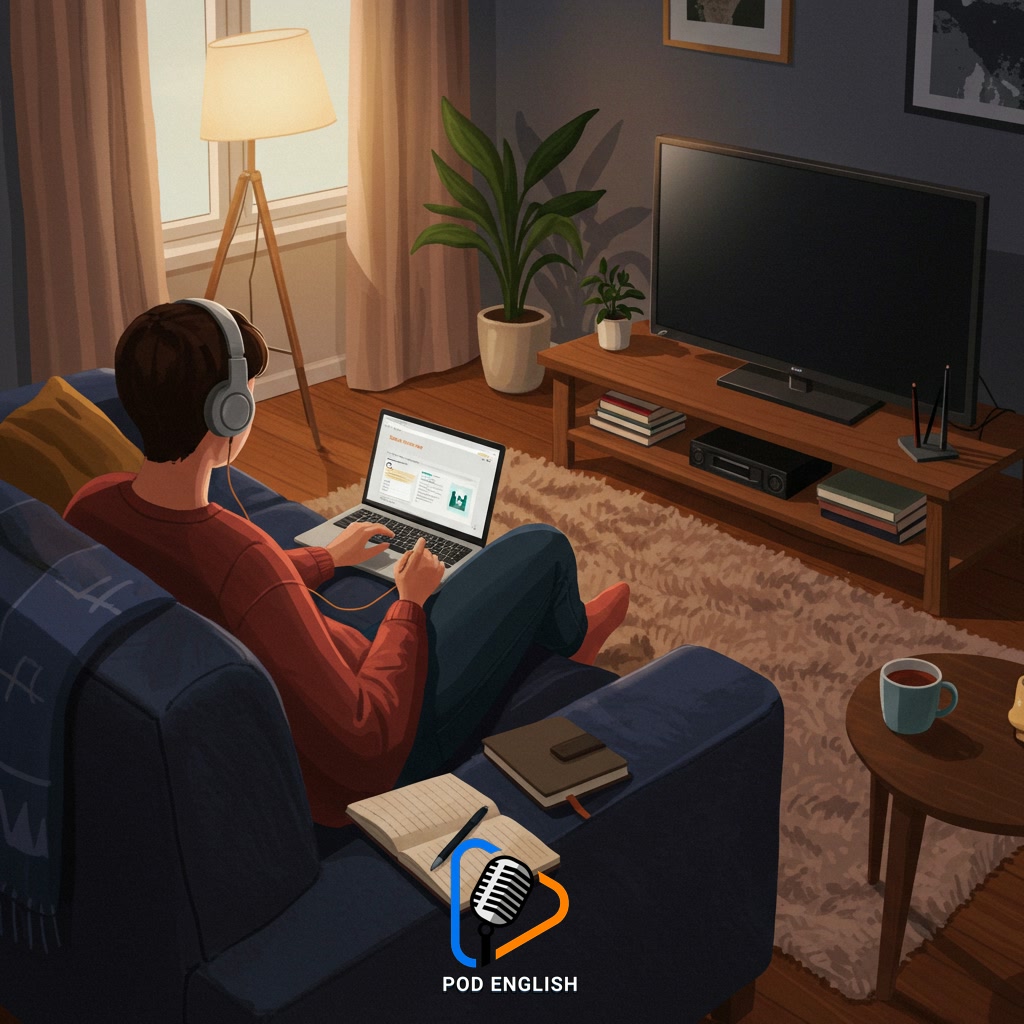
Conclusion: Making Entertainment Your English Classroom













